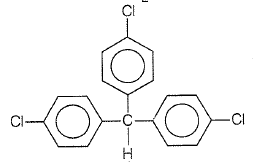A and B in the following reactions are  A
A
1. A=, B=NaOH
2. A= , B=
, B=
3. A= , B=
, B=
4. A= , B=
, B=
 A
A
 , B=
, B= , B=
, B= , B=
, B=The product formed in aldol condensation is
1. a beta-hydroxy acid
2. a beta-hydroxy aldehyde or a beta-hydroxy ketone
3. an alpha-hydroxy aldehyde or ketone
4. an alpha, beta unsaturated ester
Consider the following reaction,
PhenolXYZ
The product Z is
1. toluene
2. benzaldehyde
3. benzoic acid
4. benzene
Reduction of aldehydes and ketones into hydrocarbons using zinc amalgam and conc. HCl is called
1. Clemmenson reduction
2. Cope reduction
3. Dow reduction
4. Wolff-Kishner reduction
Aldol condensation will not take place in
1. HCHO
2.
3.
4.
In the below reaction, product 'P' is:
| 1. |  |
2. |  |
| 3. |  |
4. |  |
The -OH group of an alcohol or the -COOH group of a carboxylic acid can be replaced by -Cl using
1. phosphorus pentachloride
2. hypochlorous acid
3. chlorine
4. hydrochloric acid
An ester is boiled with KOH. The product is cooled and acidified with conc. HCl. A white crystalline acid separates. The ester is
1. methyl acetate
2. ethyl acetate
3. ethyl formate
4. ethyl benzoate
The compound formed when malonic acid heated with urea, is
1. cinnamic acid
2. butyric acid
3. barbituric acid
4. crotonic acid
Trichloroacetaldehyde, CCl3CHO reacts with chlorobenzene in the presence of sulphuric acid and produces
| 1. |  |
| 2. |  |
| 3. |  |
| 4. |  |
1. 
2. 
3. 
4. 







